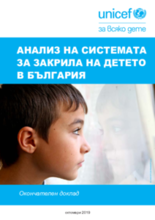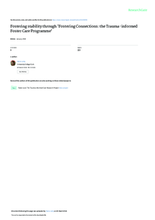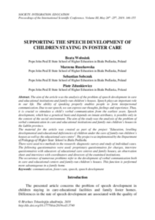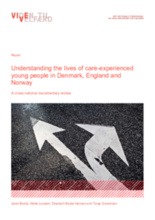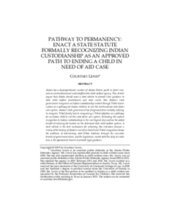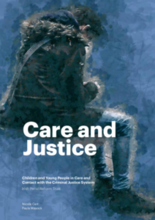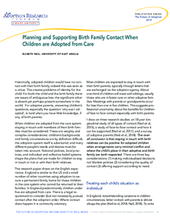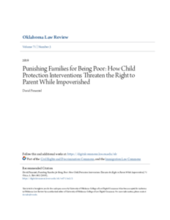Displaying 981 - 990 of 2221
This research is based on a stock-taking of the current situation. It is based on a comprehensive literature review and a genuine primary research with service users as well as policy makers, service providers, children and families.
This article describes some of the research outcomes and the ongoing work of the research collaboration between University College Cork (UCC) and Tusla – Child and Family Agency which sought to make a contribution to fostering stability through applying the approach of traumainformed care.
The aim of the article was the analysis of the problem of speech development in care and educational institutions and family-run children’s houses in Poland.
The aim of this doctoral thesis was to identify why there are higher rates of unauthorised absence from school among post-primary looked after children and young people (LACYP), what does this tell us about their educational experiences, and what is known to be helpful or unhelpful in addressing this issue.
This working paper has reviewed cross-national datasets for the general population and available national data and other relevant (grey and academic) literature concerned with young people in care and care leavers in the three study countries.
This article argues that the US state of Alaska should enact a state statute to provide clear guidance to state child welfare practitioners and state courts that Alaska’s state government recognizes an Indian custodianship created through Tribal law or custom as a pathway for Indian children to exit the overburdened state foster care system.
This report presents the findings arising from a small-scale exploratory study commissioned by Irish Penal Reform Trust (IPRT) that aimed to explore the extent to which children with care experience are over-represented in the Irish youth justice system.
When children are adopted from the care system staying in touch with members of their birth families must be considered.This research paper draws on the English experience.
The Routledge Handbook of Critical Social Work brings together the world’s leading scholars in the field to provide a cutting-edge overview of classic and current research and future trends in the subject.
This article from the Oklahoma Law Review explores the US child welfare system and the practice of family separation of poor families.

